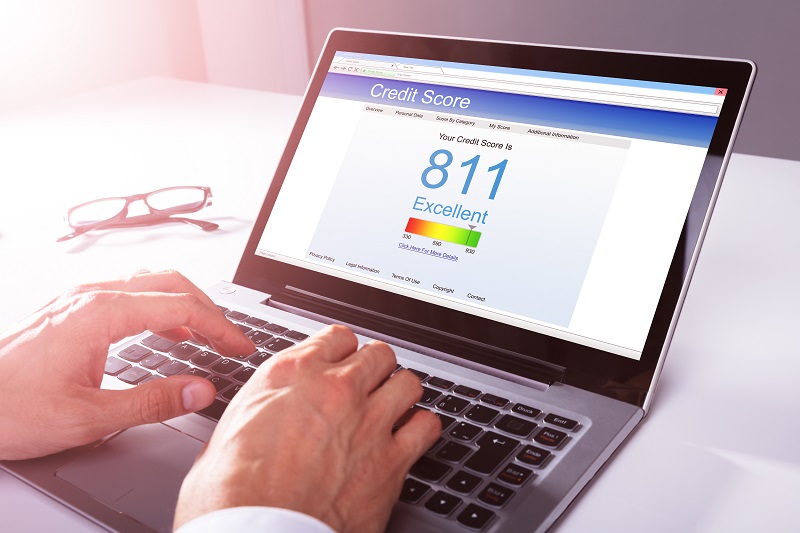Loans are an inevitable requirement across the world today. To realize our dreams of buying a home, car or high-cost electronic gadgets.
Living the good life in the UAE becomes easier with a loan that works for you. In this context, the credit score plays an important role. Banks use these scores as an important criterion to evaluate loan applications, even determine the loan amount that can be sanctioned and the interest rate to be charged. A higher credit score is a leeway to avail higher credit at lower interest. It means a lower credit risk to the bank too.
The credit score report helps in identifying the potential credit risk of a borrower. Banks use credit score reports to find out:
- Payment history of the applicant:Late payments, loan default, bankruptcy, missed payments and other failed commitments stay as negative information on the report.
- Total Outstanding Debt: The credit score report gives details regarding the total outstanding debt along with credit cards held by the applicant. It can be safely assumed the lesser the debt, the higher chances of getting credit. Total outstanding debt includes credit taken from different banks.
- Length of Credit History: Banks consider how responsibly you’re using credit in a larger timeframe. They try to understand your credit card usage frequency, timely payments, types of credit accounts and amount of available credit used.
- Different types of Credits used: Banks check repayment track record by taking into account different types of credits taken by the borrower, such as credit cards, car loans, home loans and mortgages.
- Multiple Accounts: When a borrower opens multiple accounts for new credit cards and loans, banks question the ability of repayment and hesitate to offer credit.
Credit score plays an important role in the bank’s understanding to approve the borrower of a credit. If you have noticed a drop in the score, there could be reasons such as:
- Missed a credit card payment: If the payment is missed or overdue, banks will inform credit bureaus regarding the default in timely repayment.
- Outstanding loan EMI payment: This would affect your credit score besides making you incur high penalty charges.
- Applied for new credit card: Credit history will be reviewed for ascertaining creditworthiness whenever you apply for a new credit card or loan. A low credit score will bring it even lower.
- Credit utilization: This is the available credit on your credit card during a time period. Higher credit utilization can reduce your credit score.
- Credit limit reduced by bank: If your card-balance remains 3,000 while the bank reduces credit limit from AED 10,000 to AED 6,000, your credit utilization would show 50% instead of 30%. This will bring your credit score down.
- Closed a credit card: Your credit utilization will increase, and the length of your credit history will get reduced if you close your credit card account.
- Inaccurate information on credit report: The best step to resolve inaccuracy is to keep checking your credit reports regularly.
- Loan payoff: Sudden increase of your loan accounts can show inconsistency leading to a drop in credit score.
Tips To Improve Credit Score
- Pay your credit card bills on or before the due date.
- Make sure you are regular in your EMI repayments for any loans
- Negotiating with your bank to clear a part of the credit card bill or other installments.
- Reviewing the AECB (Al Etihad Credit Bureau) credit report to resolve possible mistakes.
- Paying credit card and other bills on time
- Clearing existing loans will have a good impact on the credit report.
- Manage existing credit cards – even use an inactive credit card to make some payments.
- Not applying for a loan several times because getting rejected will be added to the credit report.
The credit score ranges from 300 to 900. A credit score above 700 is considered a good one.
Why Banks Reject Loan Applications
Debt-Burden Ratio: The sum of all monthly repayments and 5% of the credit limit on all credit cards should not exceed 50% of your fixed monthly income as mandated by the UAE Central Bank.
Credit History:A credit report from Al Etihad Credit Bureau (AECB) enables banks to see all the loans and credit cards you possess and your repayment track record. Missing out on repayment time can create a negative credit rating.
Employment tenure and stability:Most banks lend only if you have been in your current job for at least six months.
Application form errors: Errors while providing your personal details can also lead to a rejection of your loan application.
The Future of Credit Scoring
The gears of credit scoring are already shifting to newer components for assessing the borrower’s credibility. Digital and social media footprints are being leveraged to improve the current credit scoring system. Data mining and analytics along with AI and ML to write self-automated algorithms are making it easier to categorize large amounts of data for helping lenders evaluate the worthiness of a borrower through different parameters.
This is just the beginning of innovation in credit scoring methods. We’ve to wait and see how these new processes achieve the transformation.
